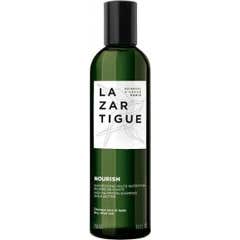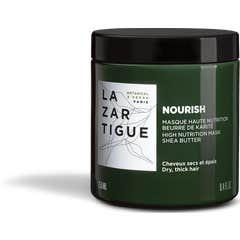The baobab should be introduced: it is indeed one of the most famous African trees, whose particularly majestic body is a symbol of dry tropical Africa. What is less known is that the whole tree is a resource for the local populations: spongy wood which retains water, bark for making ropes, leaves rich in proteins transformed into flour, pulp with a high content of vitamins utilized in drinks and traditional remedies, seeds pressed to make oil, many applications are attributed to it, most of them ancestral. The nutritional interest of the pulp of the baobab fruit is formulated with its high content of calcium, vitamin C and fiber. It also contains a significant amount of B vitamins (thiamine B1, riboflavin B2 or niacin B3) and amino acids. It also contains potassium (6 times more than bananas) and manganese, an important antioxidant. It is considered a fortifier for everyone: children, the elderly, athletes, and it is especially recommended for keeping fit and vital! Baobab powder is also a high-quality prebiotic (improves intestinal flora) thanks to its high soluble fibre content.
Ethnoscience Baobab Powder 150g
Log into your account and set up an alert to be notified when the product becomes available again.
Do you want us to notify you when it is available?
Description
Instructions for use
Dilute (10 to 15 g) per day for in water or fruit juice, smoothies, or can be added in yogurt or in breakfast cereals, can also be added to the dough in cakes, bread, pancakes, desserts, etc..
Composition
Nutritional values per 100 g : Energy value 175 kcal / 732 kJ - Fat less than 1 g - Carbohydrates 37 g - Dietary fibre 44 g of which soluble fibre 22 g - Protein 3 g - Vitamin C 295 mg 300 % NRV* - Calcium 300 mg 30 % NRV* - Iron 2 mg 20 % NRV* - Manganese 1 mg 40 % NRV* - Potassium 2310 mg 120% NRV* -*Nutritional reference values.
Pharmaceutical Advice
Iron is a functional mineral that contributes to the body's growth and development. It is present in haemoglobin and myoglobin. These proteins transport oxygen from the lungs to the rest of the organism. Iron is also involved in the creation of hormones and connective tissue.
Our organism absorbs this mineral from foods such as seafood, lean meat, eggs, pulses and nuts. To facilitate its absorption, it is advisable to add acidic foods rich in vitamin C, such as orange or lemon juice, to the diet. A lack of iron in the diet can cause iron deficiency (anaemia). In the long term, it can lead to symptoms such as a constant lack of energy, fatigue, intestinal disorders and/or difficulty keeping body temperature under control. Lack of iron can be restored through a varied diet. If this is not enough, it can be mitigated through supervised supplementation. It is essential to follow the advice of a healthcare professional and always avoid taking an iron dietary supplement without checking if you are deficient in this mineral.
The body's iron requirements will change throughout the years. It is particularly important to regulate it during the years of menstruation, as well as in pregnant women and infants. Iron is also actively involved in development and growth and is therefore very important for newborn babies.
Safety and product information
Safety visual aids
At this time we do not have safety images for this product, but we are working on it. We encourage you to check back later for updates. In the meantime, we recommend that you read the safety information that comes with the product before using it. If you have any questions about safety, please do not hesitate to contact us. Also, if you wish, you can also return the product by following our terms and conditions.
Manufacturer details
At the moment we do not have the manufacturer's details, but we are working to add them as soon as possible. We invite you to check back later for updates. If you have any questions, please do not hesitate to contact us, we will be happy to help you.
RELATED SEARCHES ABOUT Food
New in Nutrition
- Sct Nutrition Hydra Durazno 20comp
- Propomax Nariz Garganta Bio Propóleos Verde Marrón Bio 40caps
- Sante Verte Actirub Dolor de Garganta Triple Acción 20comp
- Novanuit Noche Completa 1,9mg 20comp
- 3C Pharma Efirub Solución Bebible 10x10 ml
- Health4U Aceite Onagra Special Edition 60caps
- Granions Minceur & Beauté Proteínas Vegetales + Colágeno 275 g
- Pranarôm Aromaforce Ola de Frío 9x2 g
- Nat&Form Cromo 200µg 60 Perlas
- Marnys Pack Spray Propóleo + Propolsaft Plus 12 Sticks





